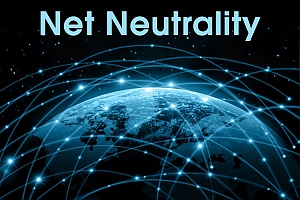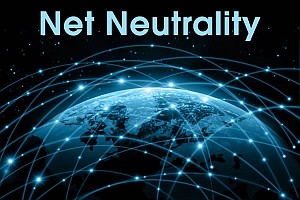If you are India’s active netizens, it is most unlikely that the word Net neutrality have escaped the daily dose of your social media update and news. Net neutrality is the first amendment of the internet. It is the idea that all the Internet service providers (ISPs) should treat all the data that travels across their networks fairly, without any sorts of improper discrimination in the favor of particular apps, sites or services. It is basically the policy that your cellular, cable or phone internet connection should treat all the websites and services the same. No citizen would want to pay extra for using WhatsApp or playing videos on you tube and so on. Net neutrality is basically a fundamental principle that makes the net a level playing field where everyone has a voice. Fairness, openness and the freedom are basically the three principles that make internet the most powerful medium of today’s time. In essence, net neutrality implies that all the internet data should be treated in equality, that there should be no fast or slow lanes for internet, or that users should pay differently for accessing some websites. The best way to explain net neutrality is that a public information network will end up being most useful if all its contents, sites, and platforms are treated equally. While online activists and even big companies in India such as Flipkart, ClearTrip have come out to support net neutrality, the debate isn’t really simple when it comes in India. A neutral internet basically means level playing field. It is a principle that has faced many threats over the years, such as ISPs forging packets to tamper certain kinds of traffic or slowing down or even outright blocking protocols or applications.
Since the dawn of the internet, there has been a presumption amongst its creators that information that was transmitted was treated equally. This general admission, come-one-come-all quality was the foundation that allowed the web’s organic growth from a fringe service to the fundamental, worldwide communications service we know today. But even as the information available online exploded exponentially, the companies that provided the internet access on-ramp consolidated into the small handful of giant service providers we know today. As power consolidated into the hands of the very few service providers, they realized they might have the freedom to prioritize and degrade certain types of content flow over the pipes they control. As examples of this abuse began to surface, the Americans asked the FCC to step in and codify the presumption of net neutrality into actual regulations to prevent ISPs from engaging in preferential or discriminatory treatment for financial gain or just because they felt like it. The Federal communications Commission (FCC) is currently debating legislation to define limits for ISPs. The hope is that they will keep the internet open and prevent companies from discriminating against different kinds of websites and services. Telecom regulator Trai has come out with a consultation paper on the appropriate regularity framework for OTT (over the top) services. Net neutrality is the nub of the consultation. The paper narrates the woes of the telecom service providers over OTT services like skype, WhatsApp, Viber and so on eating up their calling and texting revenue. Trai supports net neutrality and is seeking public views regarding the future of net neutrality in India.
Why do we need net neutrality? There can be many reasons to answer this question. Net neutrality has basically shaped the internet. Web users are free to connect to whatever website they want and ISPs do not bother with what type of content is flowing through their servers. Moreover net neutrality has enabled a level playing field on the internet. To start a website, one doesn’t need a lot of money or connections. And one does not have to talk to the ISPs to put their website online. Over-the-top (OTT) services such as WhatsApp, Viber, Hike and the other messaging and calling apps are continuously eating up the revenues of telecom providers- SMS and calling. Users can send unlimited amount of messages, and do unlimited voice calling. All this is possible through sending message and voice over data. But the problem here is earlier it used to be the biggest revenue generation factors for various telecom service providers.
If there is no net neutrality, ISPs will have the power to shape internet traffic so that they can derive extra benefit from it. It will mean that ISPs will be able to charge companies like YouTube and Netflix as they consume more bandwidth and eventually the load of extra sum will be pushed to the consumers. Similarly, ISPs can then create slow as well as fast internet lanes, which will mean all websites cannot be accessed at the same speed and one can do so only on paying and additional sum. Net neutrality has basically encouraged new age entrepreneurs to bring in innovative business models making technology as an integral part of business; be it banking, real estate, e-commerce etc. and hence it is extremely important for small business owners, start-ups and entrepreneurs, who can simply launch their business online, advertise the products and sell them openly, without any discrimination. It is essential for innovation and creating job opportunities. With increasing Internet penetration in India, the lack of net neutrality should worry us greatly. Various services such as Facebook, twitter and so on started as basic websites with modest resources. But they succeeded because net neutrality allowed the users to access the websites in an easy and unhindered way.
-SIMRAN MEHTA




